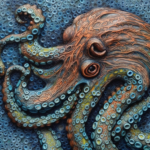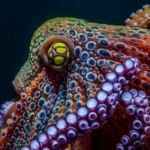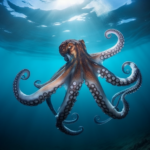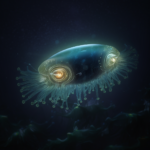Octopuses are fascinating creatures that inhabit the depths of the ocean, known for their intelligence and unique behaviors. One such behavior that has puzzled scientists for years is the act of octopuses eating themselves. Yes, you read that right. Octopuses have been observed engaging in autophagy, a process where they consume their own arms. This bizarre behavior raises many questions: Why do octopuses eat themselves? What drives them to engage in such self-destructive behavior? In this article, we will delve into the intriguing world of octopuses and explore the possible reasons behind this puzzling phenomenon. So, let’s dive in and unravel the mysteries of why octopuses eat themselves.
Key Takeaways
- Octopuses may eat themselves due to stress, captivity, or injury.
- Autophagy, the process of self-cannibalism, can occur when an octopus is unable to find food or is experiencing a decline in health.
- This behavior is rare but has been observed in both wild and captive octopuses.
- Understanding the reasons behind self-cannibalism in octopuses can provide insights into their behavior and welfare.
Understanding Octopus Behavior: The Basics
A. Octopus Eating Habits: A General Overview
Octopuses are fascinating creatures with unique behaviors that have intrigued scientists and marine enthusiasts for centuries. One aspect of octopus behavior that has puzzled researchers is their tendency to engage in self-cannibalism, or the act of eating their own arms. While this behavior may seem bizarre and even gruesome to us, it serves a purpose in the life of an octopus.
-
Predatory Nature: Octopuses are highly intelligent and opportunistic predators. They have a diverse diet that includes crustaceans, mollusks, and even small fish. Their ability to camouflage themselves and their flexible bodies allow them to capture prey with ease.
-
Starvation Survival: In the wild, octopuses face periods of food scarcity. When food is scarce, an octopus may resort to eating its own arms as a survival tactic. By sacrificing a limb, the octopus can sustain itself until it finds more food.
-
Regeneration: One of the remarkable abilities of octopuses is their ability to regenerate lost limbs. By consuming their own arms, octopuses can replenish their energy reserves and initiate the regrowth process. This adaptive behavior ensures their long-term survival in challenging environments.
B. The Role of Stress in Octopus Behavior
Stress plays a significant role in the behavior of octopuses, including their propensity for self-cannibalism. Octopuses are highly sensitive creatures, and various environmental stressors can trigger unusual behaviors.
-
Environmental Stressors: Octopuses are susceptible to changes in their surroundings, such as temperature fluctuations, changes in water chemistry, and disturbances in their habitat. These stressors can disrupt their normal feeding patterns and lead to self-destructive behaviors.
-
Starvation-Induced Stress: When octopuses experience prolonged periods of starvation, their bodies undergo physiological changes that can increase stress levels. This stress can manifest in behaviors like self-cannibalism as a desperate attempt to survive.
-
Senescence and Health Issues: As octopuses age, they may experience health issues and a decline in their overall well-being. This can lead to increased stress levels and aberrant behaviors, including self-cannibalism. Researchers believe that these behaviors may be a result of hormonal changes and the deterioration of the octopus’s nervous system.
C. The Mating Rituals of Octopuses: A Prelude to Self-Cannibalism
Octopuses have complex mating rituals that involve both courtship and aggression. These rituals can sometimes escalate to the point of self-cannibalism.
-
Male Competition: Male octopuses often engage in fierce competition for the opportunity to mate with a female. This competition can involve displays of aggression and physical combat. In some cases, a male may bite off one of his own arms and present it to the female as a gift during courtship.
-
Female Response: Female octopuses have been observed to engage in self-cannibalism during or after mating. This behavior is believed to serve multiple purposes. It may help the female regain lost energy after mating, provide nourishment for her developing eggs, or even eliminate potential threats from males.
-
Reproductive Success: Self-cannibalism in the context of mating rituals is a complex behavior that may have evolved to increase reproductive success. By sacrificing a limb or consuming their own bodies, octopuses can enhance their chances of survival, reproduction, and passing on their genes to the next generation.
In conclusion, octopuses exhibit a range of fascinating behaviors, including self-cannibalism. While this behavior may seem shocking to us, it serves a purpose in the life of an octopus. Understanding the factors that contribute to octopus self-cannibalism, such as their eating habits, stress levels, and mating rituals, can provide valuable insights into the complex world of these remarkable creatures.
The Phenomenon of Autophagy in Octopuses
A. How Do Octopuses Eat Themselves: The Process Explained
Octopuses are fascinating creatures with complex behaviors and unique adaptations. One of the most intriguing behaviors observed in octopuses is autophagy, where they eat parts of their own bodies. This self-cannibalistic behavior has puzzled scientists for years, and understanding why octopuses engage in this behavior is a topic of ongoing research.
Autophagy in octopuses involves the intentional consumption of their own arms. This behavior typically occurs when an octopus is under extreme stress or facing adverse environmental conditions. It is important to note that octopuses do not eat their entire bodies; instead, they selectively target their own arms.
The process of self-cannibalism starts with the octopus biting its own arm. This initial bite triggers a series of events that lead to the arm being severed from the rest of the body. The octopus then consumes the detached arm, effectively eating itself. This behavior is known as autotomy, which is the ability to voluntarily detach a body part.
B. The Circumstances Leading to Octopuses Eating Themselves
Octopuses engage in self-cannibalism under specific circumstances. One of the main triggers for this behavior is stress. When octopuses experience high levels of stress, such as captivity, overcrowding, or exposure to predators, they may resort to self-cannibalism as a coping mechanism. This behavior is thought to be a response to extreme environmental stressors.
Another factor that can lead to self-cannibalism in octopuses is starvation. When octopuses are deprived of food for extended periods, they may turn to self-cannibalism as a survival tactic. By consuming their own arms, they can obtain vital nutrients and energy to sustain themselves during times of scarcity.
It is important to note that self-cannibalism is not a common behavior in octopuses. It is typically observed in captive individuals or those facing severe environmental challenges. In the wild, octopuses have access to a diverse range of prey, reducing the need for self-cannibalism as a survival strategy.
C. The Biological Implications of Octopus Self-Cannibalism
The phenomenon of octopus self-cannibalism has significant biological implications. One possible explanation for this behavior is the regenerative capabilities of octopuses. Unlike many other animals, octopuses have the remarkable ability to regenerate lost body parts, including their arms.
By consuming their own arms, octopuses may be able to redirect resources towards regrowth and healing. This self-sacrificial behavior allows them to prioritize the regeneration of vital body parts, ensuring their long-term survival and reproductive success.
Additionally, self-cannibalism in octopuses may also be linked to hormonal changes. Studies have shown that the removal of an arm triggers a hormonal response in octopuses, particularly in females. This hormonal response can influence reproductive processes, such as the production and maturation of eggs.
Further research is needed to fully understand the complex interplay between stress, regeneration, and hormonal changes in octopuses. By studying this behavior, scientists hope to gain insights into the physiological and psychological mechanisms that drive self-cannibalism in these fascinating creatures.
In conclusion, the phenomenon of octopus self-cannibalism, known as autophagy, is a behavior observed in octopuses under extreme stress or starvation. This unique behavior involves the intentional consumption of their own arms, which may serve as a survival strategy and aid in regeneration. Further research is needed to unravel the intricate biological implications of this behavior and shed light on the underlying mechanisms driving self-cannibalism in octopuses.
The Role of Stress in Octopus Self-Cannibalism
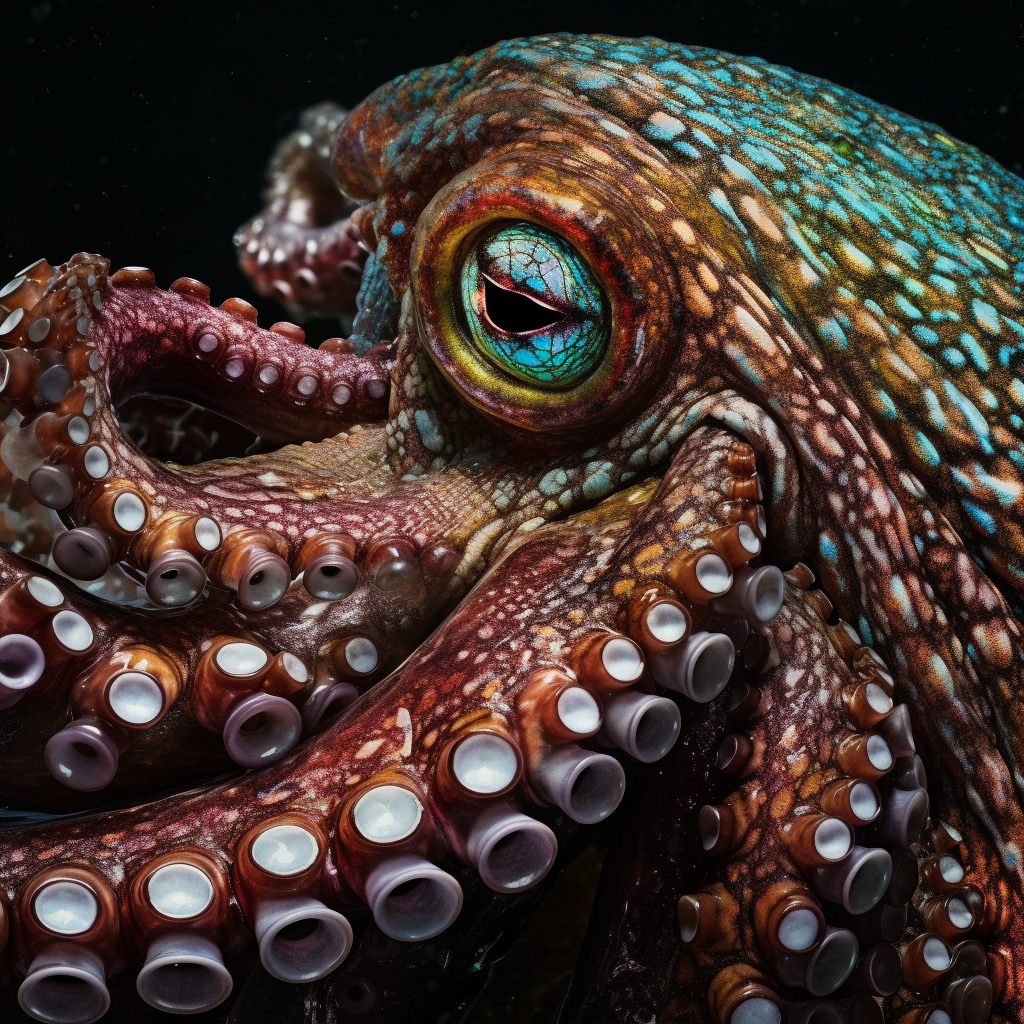
A. Stress Triggers in the Octopus World
Octopuses are fascinating creatures with complex behaviors and unique adaptations. One intriguing behavior observed in some octopuses is self-cannibalism, where they consume their own arms or other body parts. While this behavior may seem bizarre and self-destructive, it serves a purpose in the octopus world. Stress plays a significant role in triggering self-cannibalism in these intelligent cephalopods.
Octopuses experience stress in various ways, just like any other animal. Environmental stressors such as changes in temperature, salinity, or the presence of predators can induce stress responses in octopuses. Additionally, captivity, lack of stimulation, and limited space can also contribute to their stress levels. These stressors can lead to abnormal behaviors, including self-cannibalism.
B. Stress-Induced Self-Cannibalism: A Survival Mechanism?
Self-cannibalism in octopuses may seem counterintuitive, but it could be a survival mechanism in response to extreme stress. When an octopus is under significant stress, it may resort to self-mutilation as a way to cope with the overwhelming situation. By sacrificing one of its own arms, the octopus redirects its energy towards healing and regenerating the lost limb rather than succumbing to the stressor.
This self-cannibalistic behavior is similar to autotomy, a common defense mechanism observed in many animals. Autotomy involves deliberately shedding or sacrificing a body part to escape from a predator or a dangerous situation. In the case of octopuses, self-cannibalism can be seen as a form of autotomy triggered by stress.
C. The Connection between Stress and Post-Mating Self-Cannibalism
Another interesting aspect of self-cannibalism in octopuses is its occurrence after mating. Female octopuses often engage in post-mating self-cannibalism, where they consume their own arms or other body parts. This behavior has been observed in several species, including the common octopus (Octopus vulgaris).
The connection between stress and post-mating self-cannibalism lies in the hormonal changes that occur during the reproductive process. After mating, female octopuses experience a surge in hormone levels, particularly the hormone known as gonadotropin-releasing hormone (GnRH). This hormone surge triggers a cascade of physiological changes, including the production of eggs and the release of stress hormones.
The combination of elevated stress hormones and the presence of eggs can lead to heightened stress levels in female octopuses. This stress, coupled with the hormonal changes, may drive them to engage in self-cannibalism as a way to alleviate the physiological and psychological burden associated with reproduction.
In conclusion, stress plays a crucial role in triggering self-cannibalism in octopuses. Environmental stressors and captivity-related factors can induce stress responses in these intelligent creatures, leading to abnormal behaviors such as self-mutilation. Self-cannibalism, although seemingly self-destructive, may actually serve as a survival mechanism for octopuses under extreme stress. Furthermore, the connection between stress and post-mating self-cannibalism highlights the complex interplay between hormonal changes and stress responses in female octopuses. Understanding the role of stress in octopus self-cannibalism provides valuable insights into the behavioral and physiological adaptations of these remarkable creatures.
The Mystery of Post-Mating Self-Cannibalism in Octopuses
Octopuses are fascinating creatures that never cease to amaze us with their unique behaviors. One such behavior that has puzzled scientists for years is post-mating self-cannibalism. Yes, you heard it right – some octopuses have been observed eating themselves after mating. But why do they engage in such bizarre behavior? Let’s delve into this intriguing mystery and explore some possible explanations.
A. Why Do Octopuses Eat Themselves After Mating?
-
Stress and Aggression: One theory suggests that post-mating self-cannibalism in octopuses may be a result of stress and aggression. Mating can be a physically and emotionally taxing experience for these cephalopods, and it is believed that the stress hormones released during this time may trigger self-destructive behavior.
-
Starvation and Survival: Another possible reason for this behavior is starvation. Octopuses are known to have voracious appetites, and after mating, females often stop eating to protect their eggs. This prolonged period of fasting can lead to extreme hunger and desperation. In some cases, an octopus may resort to self-cannibalism as a last-ditch effort to survive.
-
Senescence and Decline: As octopuses age, they go through a process called senescence, which is similar to aging in other animals. During this stage, their bodies start to deteriorate, and they become more susceptible to diseases and infections. It is believed that post-mating self-cannibalism may be a manifestation of this decline, as the octopus’s body may no longer be able to function properly.
B. The Role of Hormonal Changes in Post-Mating Self-Cannibalism
-
Hormonal Imbalances: Hormonal changes play a crucial role in the behavior of octopuses, including post-mating self-cannibalism. After mating, the female octopus experiences a surge in hormones, particularly the hormone known as gonadotropin-releasing hormone (GnRH). This hormone is responsible for triggering the release of eggs. However, it is believed that an imbalance in GnRH levels could lead to abnormal behavior, such as self-cannibalism.
-
Brain and Nervous System: The complex nervous system of octopuses is another factor that may contribute to post-mating self-cannibalism. The octopus‘s brain is highly developed and capable of intricate behaviors. However, it is also susceptible to changes in hormone levels. Disruptions in the delicate balance of hormones and neurotransmitters in the brain could potentially lead to self-destructive behavior.
C. The Impact of Post-Mating Self-Cannibalism on Octopus Populations
-
Population Control: While post-mating self-cannibalism may seem like a bizarre and destructive behavior, it may serve an important ecological purpose. By consuming their own bodies, octopuses eliminate the competition for resources and reduce the overall population size. This self-regulation mechanism ensures that the available resources are sufficient for the survival of the remaining individuals.
-
Environmental Stressors: Environmental stressors, such as pollution, habitat destruction, and climate change, can also influence the occurrence of post-mating self-cannibalism in octopuses. These stressors can disrupt the delicate balance of hormones and trigger abnormal behaviors. Understanding the impact of these stressors on octopus populations is crucial for their conservation and management.
In conclusion, the mystery of post-mating self-cannibalism in octopuses continues to baffle scientists. While several theories have been proposed to explain this behavior, further research is needed to unravel the complexities of octopus biology and behavior. By studying these fascinating creatures, we can gain valuable insights into the intricate workings of the natural world and the diverse strategies organisms employ for survival.
Comparing Octopus Self-Cannibalism with Other Animals
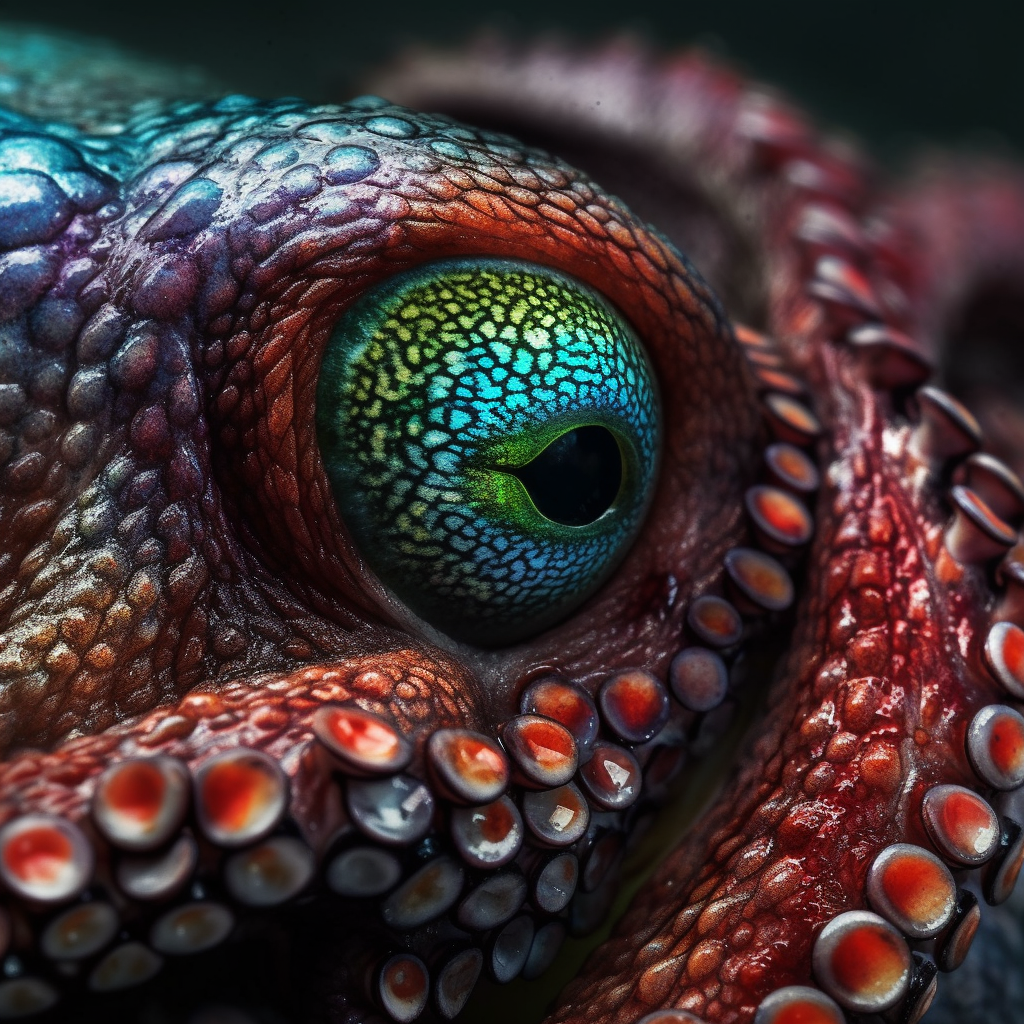
A. Do Other Animals Eat Themselves? A Comparative Analysis
Octopus self-cannibalism is a fascinating behavior that raises the question of whether other animals engage in similar self-destructive behaviors. While self-cannibalism is relatively rare in the animal kingdom, there are a few notable examples worth exploring.
1. Praying Mantis
The praying mantis is a well-known insect that exhibits post-mating cannibalism. After mating, the female praying mantis often devours the male, providing her with a source of nutrients to support the development of her eggs. This behavior is believed to increase the female’s reproductive success by ensuring a sufficient food supply for her offspring.
2. Moths
Certain species of moths also engage in self-cannibalism. For example, the female moth of the genus Calyptra is known to consume her own wings after laying her eggs. This behavior is thought to serve as a source of nutrition for the female during the period of egg incubation.
B. Praying Mantis and Moths: Other Examples of Post-Mating Cannibalism
Post-mating cannibalism, as observed in praying mantises and moths, shares some similarities with octopus self-cannibalism. In both cases, the behavior is triggered by specific events in the animal’s life cycle, such as mating or egg-laying. However, there are also notable differences between these behaviors.
1. Triggered by Reproduction
Both praying mantises and moths engage in self-cannibalism as a means to support reproduction. In the case of praying mantises, the consumption of the male provides the female with nutrients necessary for egg development. Similarly, female moths consume their own wings to sustain themselves during the incubation period. In contrast, octopus self-cannibalism does not appear to be directly linked to reproduction.
2. Nutritional Benefits
In both praying mantises and moths, self-cannibalism provides a nutritional advantage. By consuming their own body parts, these animals can obtain essential nutrients that are otherwise scarce or difficult to acquire. Octopuses, on the other hand, have a diverse diet and are not typically driven to self-cannibalism for nutritional reasons.
C. Understanding the Evolutionary Advantages of Self-Cannibalism in Animals
The evolutionary advantages of self-cannibalism in animals, including octopuses, are still not fully understood. However, researchers have proposed several hypotheses to explain this behavior.
1. Resource Conservation
Self-cannibalism may allow animals to conserve resources in times of scarcity. By consuming their own body parts, they can recycle valuable nutrients and energy. This adaptive strategy could increase their chances of survival during periods of food shortage or environmental stress.
2. Reproductive Benefits
In some cases, self-cannibalism may confer reproductive advantages. By sacrificing certain body parts, animals can redirect resources towards reproduction. For example, female octopuses may consume their own arms to provide nutrients for their developing eggs. This behavior ensures the survival and growth of their offspring, increasing their reproductive success.
3. Eliminating Weak or Damaged Tissues
Self-cannibalism may also serve as a mechanism for eliminating weak or damaged tissues. By removing compromised body parts, animals can enhance their overall fitness and increase their chances of survival. This process, known as autophagy, allows animals to prioritize the allocation of resources to healthy tissues and organs.
In conclusion, while self-cannibalism is relatively rare in the animal kingdom, there are a few examples of animals engaging in this behavior. Praying mantises and moths exhibit post-mating cannibalism, which shares some similarities with octopus self-cannibalism. These behaviors are triggered by specific events in the animal’s life cycle and provide nutritional or reproductive benefits. Understanding the evolutionary advantages of self-cannibalism in animals requires further research, but hypotheses suggest resource conservation, reproductive benefits, and the elimination of weak or damaged tissues as potential explanations.
The Human Perspective: What Can We Learn from Octopus Behavior?
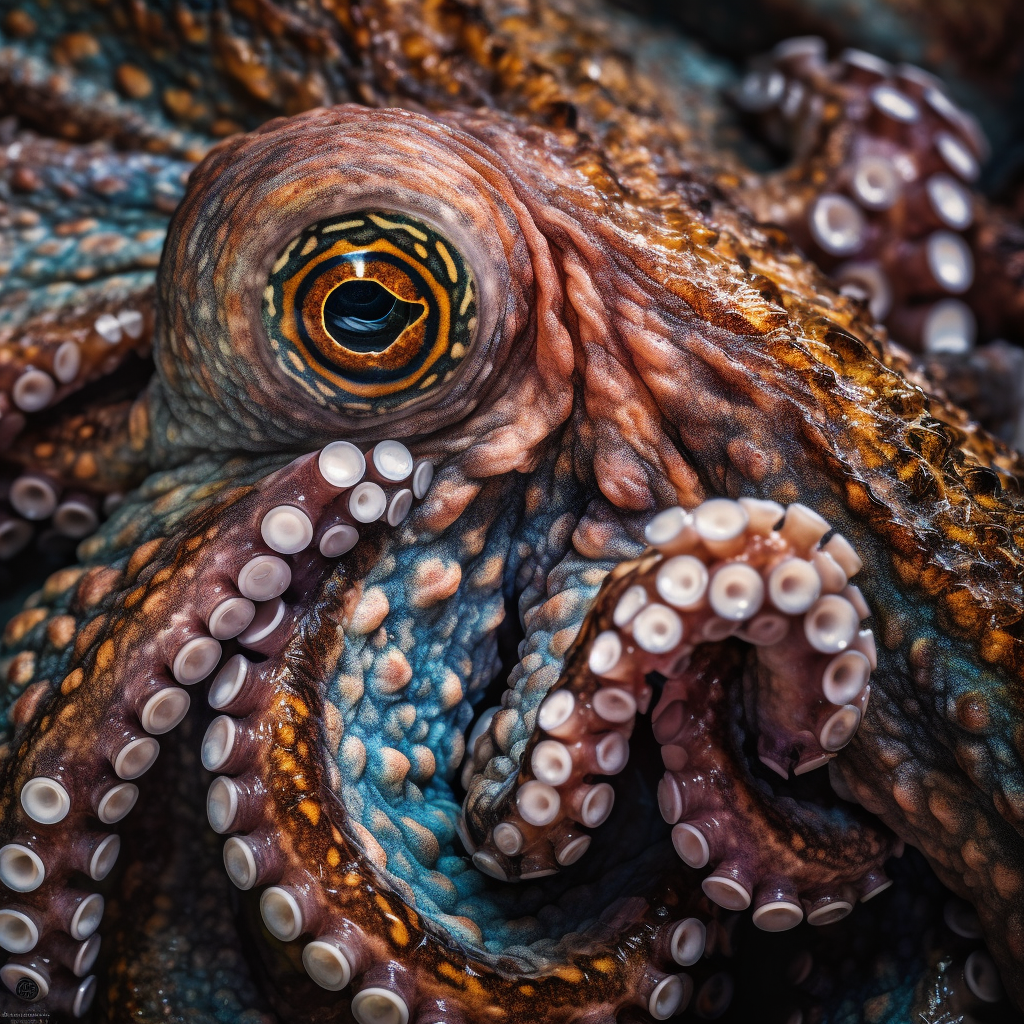
A. The Fascination with Octopus Self-Cannibalism: A Human Perspective
Octopuses are intriguing creatures that have captivated the human imagination for centuries. Their unique abilities and behaviors continue to astound scientists and laypeople alike. One particular behavior that has piqued our curiosity is octopus self-cannibalism. While it may seem gruesome and bizarre to us, there are valuable lessons we can learn from this behavior.
1. Adaptability and Survival Tactics
Octopuses are known for their remarkable adaptability to different environments. They possess the ability to change their color and texture to blend in with their surroundings, making them masters of camouflage. Similarly, their self-cannibalistic behavior can be seen as a survival tactic in times of extreme stress or starvation.
When an octopus finds itself in a dire situation, such as a lack of food or a high-stress environment, it may resort to eating its own arms. By consuming its own tissue, the octopus can sustain itself for a longer period, giving it a better chance of survival. This extreme measure showcases the resourcefulness and resilience of these incredible creatures.
2. Coping with Environmental Stressors
Octopuses, like humans, experience stress. However, their response to stress is quite different from ours. While humans may turn to various coping mechanisms, such as exercise or meditation, octopuses have their own unique way of dealing with stress – self-cannibalism.
Research has shown that octopuses exhibit self-destructive behavior when exposed to prolonged stress. This behavior is believed to be a result of the release of stress hormones, which can disrupt their normal feeding patterns and lead to self-mutilation. By studying this behavior, scientists hope to gain a better understanding of how stress affects the octopus’s nervous system and overall well-being.
B. Lessons from the Octopus: Stress Management and Survival
Octopuses have evolved a range of fascinating behaviors and adaptations that allow them to thrive in their marine environments. By studying their behavior, we can gain valuable insights into stress management and survival strategies that may have applications in our own lives.
1. Stress Management Techniques
Octopuses have developed unique ways to cope with stress, including self-cannibalism. While this behavior may seem extreme to us, it highlights the importance of finding effective stress management techniques. Just as the octopus resorts to self-cannibalism as a last resort, we should strive to find healthy and constructive ways to cope with stress.
2. Resilience and Adaptability
The octopus‘s ability to adapt to different environments and situations is truly remarkable. From changing its color and texture to self-cannibalism, these creatures demonstrate incredible resilience in the face of adversity. We can learn from their adaptability and apply it to our own lives, finding ways to overcome challenges and thrive in ever-changing circumstances.
3. Embracing Resourcefulness
Octopuses are resourceful creatures, utilizing every part of their bodies to their advantage. When faced with starvation or extreme stress, they turn to self-cannibalism as a means of survival. While we may not need to resort to such extreme measures, we can learn from their resourcefulness and find creative solutions to our own problems.
In conclusion, the fascination with octopus self-cannibalism offers us a unique perspective on the adaptability, stress management, and survival tactics of these incredible creatures. By studying their behavior, we can gain valuable insights into our own lives and learn to navigate the challenges we face with resilience and resourcefulness. Octopuses serve as a reminder that even in the most difficult circumstances, there is always a way to persevere and thrive. Conclusion
In conclusion, while it may seem bizarre and disturbing, octopuses do engage in self-cannibalism under certain circumstances. This behavior is typically observed in captive octopuses, and it is believed to be a result of stress, boredom, or a lack of environmental enrichment. When octopuses are kept in confined spaces or deprived of mental stimulation, they may resort to self-destructive behaviors, such as eating their own arms. This behavior is not a common occurrence in the wild, where octopuses have access to a wide range of food sources and a more stimulating environment. It is important for researchers and caretakers to understand the underlying causes of self-cannibalism in order to provide appropriate care and enrichment for these intelligent and complex creatures. By addressing the factors that contribute to this behavior, we can help ensure the well-being of octopuses in captivity and gain a deeper understanding of their fascinating biology and behavior.
Frequently Asked Questions
Why do octopuses eat themselves?
Octopuses sometimes resort to self-cannibalism due to a combination of stress and a malfunctioning nervous system. This behavior is often observed in captive octopuses that are subjected to poor living conditions or high-stress environments.
What do octopuses eat?
Octopuses are carnivores and their diet primarily consists of crabs, shrimp, and lobsters. They also eat fish and other small marine creatures. However, under extreme stress or health conditions, they may resort to auto-cannibalism.
Why do octopuses eat themselves after mating?
This behavior is more common in female octopuses. After laying eggs, the female stops eating and starts to deteriorate, sometimes leading to self-cannibalism. This is thought to be a survival tactic to provide nutrients for the eggs.
Do octopuses eat themselves when stressed?
Yes, octopuses can resort to self-cannibalism when subjected to high levels of stress. This is often a result of poor living conditions, such as inadequate space or unsuitable water conditions.
How does an octopus eat itself?
An octopus uses its beak, the only hard part of its body, to bite and consume its own arms. This behavior, known as auto-cannibalism, is often a result of extreme stress or health issues.
Why do octopuses eat their partner?
Male octopuses are sometimes eaten by females after mating. This is believed to be a survival tactic, where the female uses the nutrients from the male to nourish her eggs.
Do animals sometimes eat octopuses?
Yes, octopuses have many predators including sharks, larger fish, sea otters, and even other octopuses. Their primary defense mechanism is camouflage, but they can also eject a cloud of ink to confuse predators.
What do moths eat?
Moths typically feed on nectar from flowers. However, the diet can vary significantly depending on the species. Some moth caterpillars feed on leaves, fruits, and seeds, while others are parasitic.
Why do humans eat octopus?
Octopus is a popular seafood in many cultures due to its unique taste and texture. It is rich in vitamins and minerals, and is a good source of lean protein.
Do pray mantises eat octopuses?
No, pray mantises are terrestrial insects and do not come into contact with marine animals like octopuses. They typically feed on other insects and occasionally small vertebrates.

